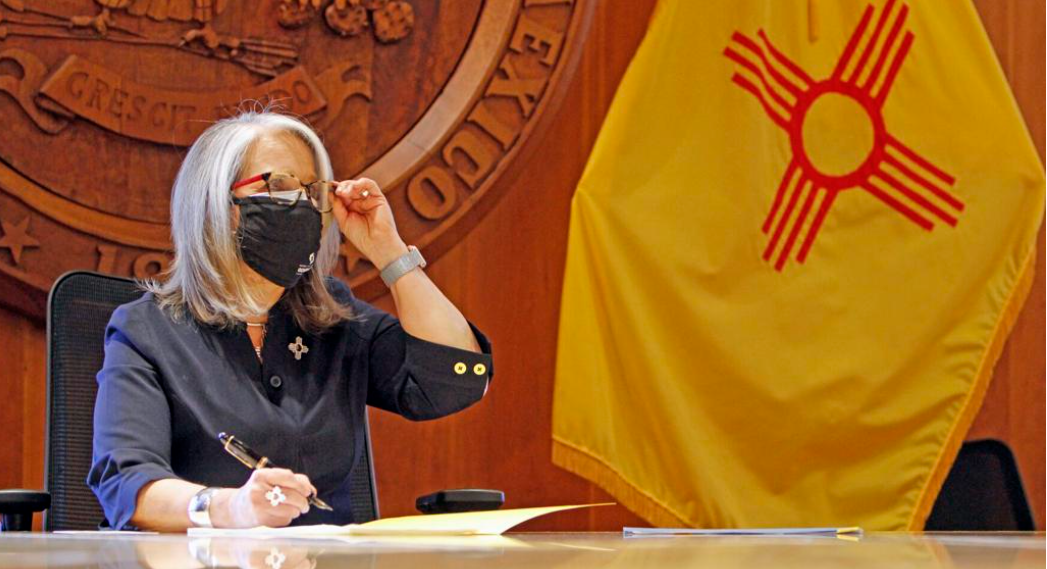New Mexico Gov. Lujan Grisham Signs Bill Eliminating Fines & Fees for Children
Santa Fe – Today, New Mexico Gov. Lujan Grisham signed HB 183, which would end the practice of charging administrative fines and fees to children involved in the juvenile justice system. Sponsored by Representatives Roger Montoya and Gail Chasey, the Juvenile Fines and Fees Reform Act will:
- Remove fines and administrative fees from the Delinquency Act within the Children’s Code.
- Eliminate the $10 application fee for a public defender in Children’s Court.
Fines and fees are ineffective at reducing crime and raising revenue and are costly to administer. Research shows that fines and fees are difficult to collect and that collection can cost states and counties almost as much or more than they end up receiving in revenue. Fines and fees also increase the likelihood that youth will face extended or repeated involvement in the juvenile and criminal justice systems.
“These harmful fines and fees entrench youth in poverty and the juvenile system rather than giving them the tools they need to succeed and move forward,” said Rep. Roger Montoya. “This new law will strengthen New Mexico’s families and help us care for and protect our youth.”
In recent years, seven other states have eliminated some or all juvenile fines and fees: CA, MD, NJ, NV, NH, VA and WA. This year, at least 11 other states have introduced similar bills: AR, AZ, DE, FL, IN, LA, MI, NJ, OR, PA, and WY.
“Fines and fees prevent youth from investing in their futures and push low-income youth and their families deeper into poverty,” said Rep. Gail Chasey. “They are yet another stumbling block for youth, making it more difficult to complete court requirements, invest in their education, and refocus on their futures.”
Fines and fees disproportionately harm children in families earning low incomes, as well as youth of color and their families. In New Mexico, Hispanic and Indigenous youth make up the majority population in juvenile detention and Black youth are arrested at twice the rate of white youth. All three groups experience disproportionate referrals to juvenile court and harsher sentencing than do white youth.
New Mexico’s high rates of poverty have only been exacerbated by the pandemic and recession, causing even more hardship for children and families. More than half (51%) of New Mexico adults in households with children have lost employment income since March of last year, and as many as 34% of New Mexico children were likely to be food insecure in 2020.
“Virtually all of incarcerated youth in New Mexico – 99% – have experienced some form of trauma that influenced their decision making,” said Javier Rojo, Research and Policy Analyst with New Mexico Voices for Children. “Tacking court-ordered costs onto an already traumatic experience only adds stress to their lives. The elimination of fines and fees is a big step forward in creating a more just system that focuses on rehabilitation rather than punishment.”
The proposal will not affect the assessment or collection of victim restitution. It also does not limit the court’s discretion to impose sanctions on child defendants, nor does it change probation or sentencing requirements.
“This reform allows children in the system to focus on their rehabilitation and their obligations to the court rather than on finding money to pay fines and fees,” said Bennett Baur, New Mexico Chief Public Defender.
This bill was developed in cooperation with and unanimously endorsed by the New Mexico Sentencing Commission and is the first in a long-term effort to examine reforms in the juvenile justice system.
“The New Mexico Sentencing Commission was delighted to work with the Fines and Fees Justice Center on the HB 183 initiative and other criminal justice reform initiatives in the past year,” said Douglas Carver, Deputy Director of the New Mexico Sentencing Commission. “The collaboration that produced HB 183 epitomizes how effective dialogue between all criminal justice partners can produce meaningful reform in our state.”
“Eliminating fines and fees is a necessary step in on the road to protecting the future of our youth”, said Justice Irons, a University of New Mexico Clinical Law Student.
“These fines and fees are not an effective or fair way to fund local government,” said Monica Ault, New Mexico State Director at the Fines and Fees Justice Center. “Families should not have to choose between paying fines and fees or paying for food and housing.”
